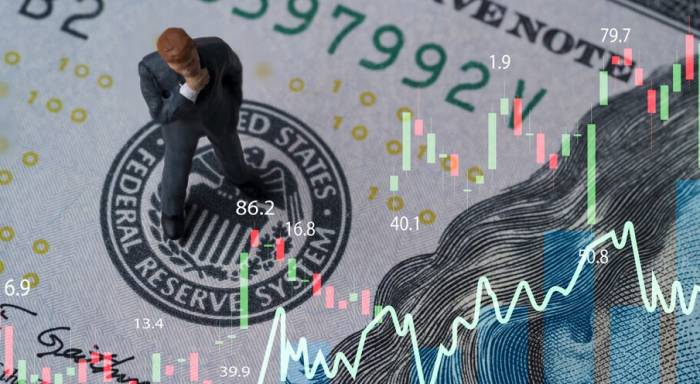The ongoing evolution of the cryptocurrency landscape has drawn substantial attention from regulators and investors alike, reflecting a dynamic interplay between innovation and regulatory oversight. This month, a pivotal announcement involving Paul Atkins, a former commissioner of the U.S. Securities and Exchange Commission (SEC), highlighted this intricate relationship. Nominated to lead the SEC, Atkins’ supportive stance towards cryptocurrency has sparked significant market reactions, particularly for Bitcoin, which saw a swift increase in value following the news.
On December 4, 2023, it was officially declared that Paul Atkins, who served as an SEC commissioner during George W. Bush's presidency, would be nominated as the next SEC chair. The announcement resulted in an immediate resurgence in Bitcoin’s price, which had dipped to a daily low just prior to the mid-day announcement. Investors seized the opportunity, propelling Bitcoin’s value beyond the $95,000 mark, and even flirting with $99,000 in the latter hours of trading. This surge represented a remarkable recovery of nearly $4,000 from its earlier lows, underscoring the importance of regulatory sentiment on market dynamics.
If Atkins’ nomination is approved, he will succeed Gary Gensler, who has indicated his intention to step down on January 20. Gensler’s tenure has been marked by a series of aggressive reforms, particularly concerning the regulation of cryptocurrencies and digital assets. His retrospective measures have often been viewed as a double-edged sword—designed to protect investors but simultaneously constraining the growth and innovation within the burgeoning cryptocurrency sector. This past regulatory approach has often met with resistance from various stakeholders in the financial industry.
The cryptocurrency community has largely viewed Gensler’s departure as a favorable development. His strategies included stringent requirements for companies, including climate risk disclosures and an overall crackdown on what he deemed as violations within the crypto space. This rigorous enforcement led to widespread criticism, as many industry experts felt Gensler failed to recognize the unique characteristics of cryptocurrencies, leaving their growth hampered by regulatory frameworks built upon traditional financial principles.
In contrast, Atkins has established himself as a proponent of a more balanced approach to regulation and has authored policies that reflect a deep understanding of the digital asset ecosystem. His history with the SEC lends him credibility, as he was influential in setting precedents related to market protections and operational efficiencies. After his SEC tenure from 2002 to 2008, Atkins founded Patomak Global Partners, a consulting firm specializing in regulatory matters, thereby keeping his finger on the pulse of financial innovation.
Furthermore, Atkins has actively participated in the discussion surrounding best practices in the cryptocurrency sector as co-chair of the Token Alliance, an organization advocating for responsible digital asset practices. This involvement reflects his commitment to fostering a healthy environment for cryptocurrency development, suggesting that under his leadership, the SEC may adopt more lenient approaches tailored to the needs of the digital asset marketplace.
His advisory role with the Reserve Rights Foundation, a decentralized finance platform, showcases his hands-on experience in the cryptocurrency space. Nevin Freeman, the co-founder and CEO of Reserve, lauded Atkins for his early contributions to their project and expressed hope that should Atkins ascend to the SEC chairmanship, he would prioritize fairness in regulatory frameworks for digital assets.
Throughout his career, Atkins has maintained a critical view of certain financial reforms implemented after the 2008 financial crisis, particularly asserting that the Dodd-Frank Act imposed severe constraints on banking operations. His criticism of these regulations indicates a potential for similar reevaluation of regulatory measures for cryptocurrencies, possibly advocating for a regulatory environment that emphasizes growth and innovation over stringent oversight.
The announcement of Atkins’ nomination was accompanied by statements recognizing him as a formidable leader with a firm belief in the role of robust, innovative capital markets in driving economic progress. His acknowledgment of digital assets as integral to America’s growth trajectory suggests a shift towards a more favorable regulatory approach in the future. This sentiment is echoed by industry stakeholders, including Tyler Gellasch from the Healthy Markets Association, who characterized Atkins as an influential figure with the capability to reshape how the SEC interacts with the cryptocurrency market.
In essence, if confirmed, Atkins is expected to focus on reducing regulatory burdens and easing penalties, fostering a more conducive environment for the cryptocurrency sector to thrive. With deep-rooted connections and extensive experience in financial policy, Atkins' leadership could herald a transformative era for the SEC. Financial markets are keenly observing this nomination, anticipating that it may lead to a recalibration of the regulatory landscape, ultimately seeking to balance investor protection with fostering innovation.
The implications of Atkins’ leadership extend beyond mere market fluctuations; they define the future of cryptocurrency regulation in America. Investors, entrepreneurs, and innovators in the digital asset space are hopeful that his tenure will cultivate an environment characterized by constructive dialogue and pragmatic regulations, paving the way for a vibrant and responsible cryptocurrency market that aligns with the broader goals of the economy.






























Join the Discussion